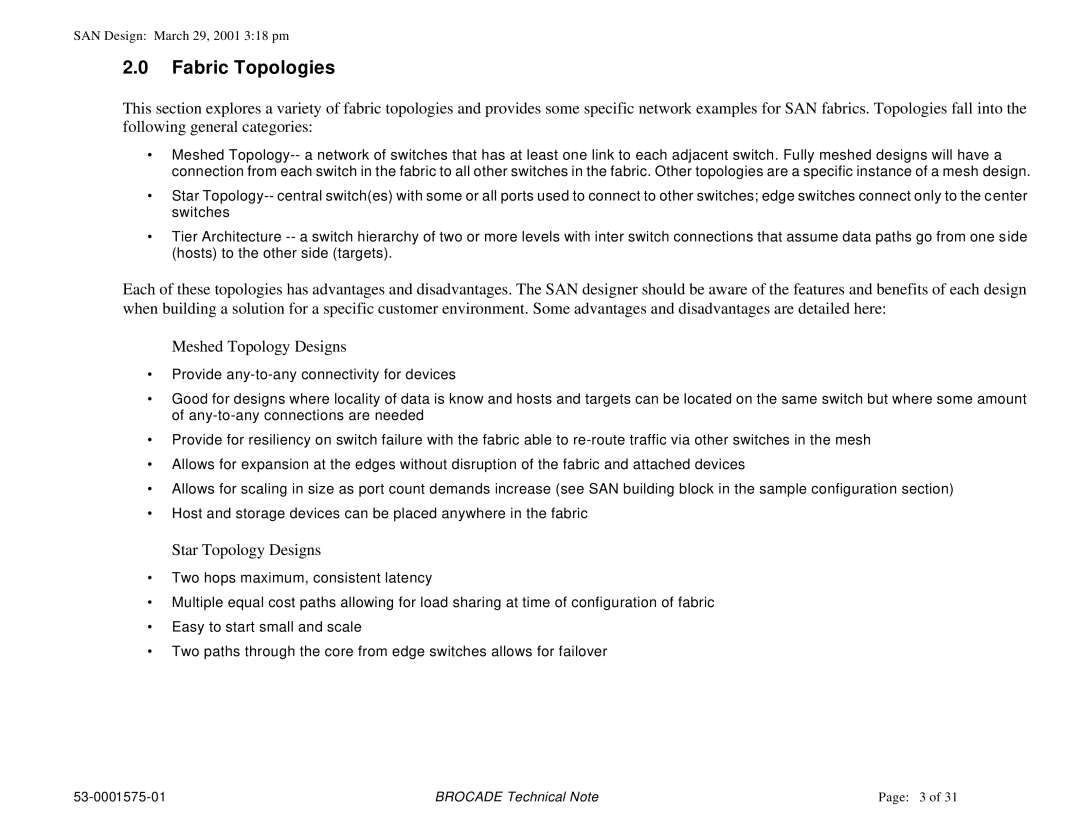SAN Design: March 29, 2001 3:18 pm
2.0Fabric Topologies
This section explores a variety of fabric topologies and provides some specific network examples for SAN fabrics. Topologies fall into the following general categories:
•Meshed
•Star
•Tier Architecture
Each of these topologies has advantages and disadvantages. The SAN designer should be aware of the features and benefits of each design when building a solution for a specific customer environment. Some advantages and disadvantages are detailed here:
Meshed Topology Designs
•Provide
•Good for designs where locality of data is know and hosts and targets can be located on the same switch but where some amount of
•Provide for resiliency on switch failure with the fabric able to
•Allows for expansion at the edges without disruption of the fabric and attached devices
•Allows for scaling in size as port count demands increase (see SAN building block in the sample configuration section)
•Host and storage devices can be placed anywhere in the fabric
Star Topology Designs
•Two hops maximum, consistent latency
•Multiple equal cost paths allowing for load sharing at time of configuration of fabric
•Easy to start small and scale
•Two paths through the core from edge switches allows for failover
BROCADE Technical Note | Page: 3 of 31 |
